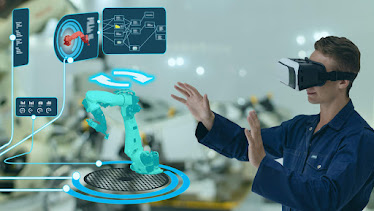What are a Few Important Applications Of Simulators and What Does Simulator Training mean for the Learner?
Simulation facilities or scientific institutes which utilize
simulations may help reduce the frequency of highway incidents by improving the
effectiveness of driving instruction. Driver Training simulator can be
very useful for beginners who are just in the learning stage. Simulation models
are extremely useful for the below purposes:
Scope of Simulator-Based Training
Following are the important applications of simulators:
1.
Driver
Behaviour Assessment
Simulators can be used to analyse driving behaviour in
crucial circumstances. The car
driving simulator may simulate any circumstance, including
tyre breakdowns, adverse climate circumstances, or patch disintegration, and
collect vital data on how drivers react to certain unforeseen circumstances.
2.
Examining
Driving Danger caused by Wireless Equipment
It is just too hazardous to test how wireless gadgets can
induce diversions in driving whilst being on the highway. Simulation models, on
either side, may study how well the driver's concentration is affected by the
length and severity of cell phone conversations.
3.
Driver
Impairments are Being Tested To See How It Affects Them.
A Driving Simulator
could accurately assess the impact of drinking on driving efficiency.
Individuals' different Blood Alcohol Content concentrations and their
consequent effects could be properly examined in a range of circumstances.
4.
The
Effect Of Illnesses On Driving Efficiency
Drivers experiencing several conditions, such as
hypertension, are more inclined to do poorly. In a totally replicated setting,
the impacts of sleepiness, weariness, carelessness, and back discomfort could
be studied. Large truck operators are frequently expected to drive great miles,
and sleeping troubles and weariness are widespread amongst certain drivers.
5.
Determining
Driving Conditions In Elderly Drivers
A simulator may determine whether the driver's immediate action skills and general reaction time has become impacted as a result of ageing. Delayed motor responses, poorer eyesight, as well as other medical conditions could all have an impact on operating abilities as we mature.
6. What Would That Imply for the
Trainee?
For the trainees, simulated testing would be a whole new perspective. To minimize the discrepancies between driving in a simulated atmosphere and operating on the exact roadway, the user would be saturated in colour, audio, and motion. Because conventional assessment techniques are ineffective at effectively assessing drivers' abilities, they were unable to find opportunities for development.
Drivers receive a certificate by driving the automobile for several hours, giving them the impression that they possess all of the essential abilities to operate their automobile on the highway. For operators, a simulation could generate up to 400 distinct situations. Utilizing the electric vehicle simulator for testing could increase the standard for driving competence, causing drivers to consider driving tests more carefully. Automobile management, traffic involvement, and assessment during extreme conditions are all elements of simulation instruction and assessment.
The following are some of the advantages of simulation training and assessment for students:
- · A standardized assessment procedure in which all the drivers are tested under similar circumstances.
- · There is no room for tampering with the outcomes.
- · All drivers are evaluated fairly.
- · Every trainee will receive a comprehensive performance evaluation.
- · During test procedures, drivers may discover their navigation blunders in real-time.
- · Eco-driving, danger detection, and protective driving are all important aspects of driving.
- · Industry-specific education and skills
- · Instruction for automated and manual transmission modes
Conclusion
These are some of the most essential uses of simulators, as
well as what simulation learning entails for the learner. Simulators have been
utilized in study, teaching, and evaluation. The study and development industry
is presently expanding at a fast pace.



Comments
Post a Comment